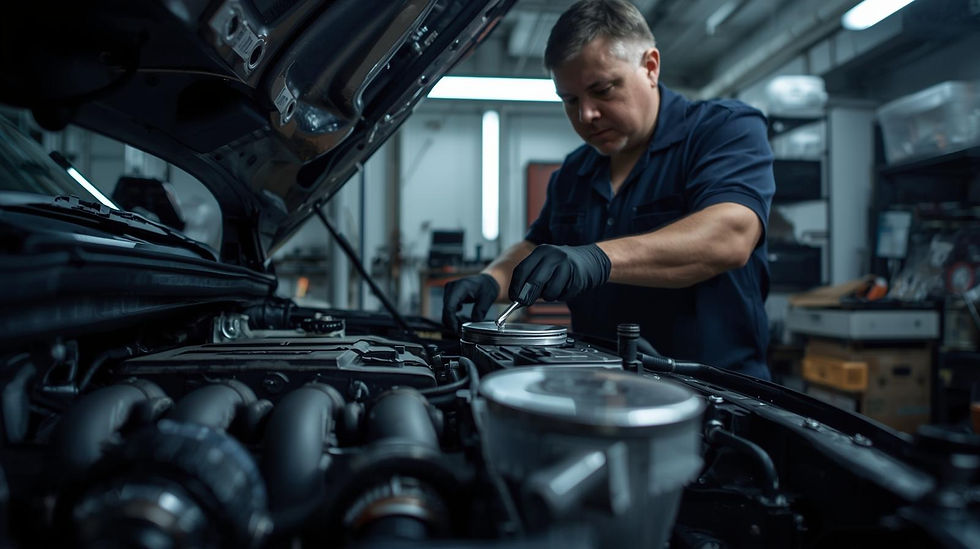FTC Decarbonizer vs DPF Cleaning Services: What's Best for Your Diesel?
- Cost Effective NZ Team

- Oct 19
- 2 min read

If you're a diesel owner, you've probably faced the dreaded DPF light at some point. When it comes to keeping your UTE running clean, you've got two main options: fuel additives like FTC Decarbonizer or dedicated DPF cleaning services. Let's break down what each does and when you might choose one over the other.
What's the Difference?
FTC Decarbonizer is a fuel additive you pour into your tank. It works continuously as you drive, breaking down carbon deposits throughout your entire combustion and exhaust system—including your DPF, EGR valve, turbo, and even inside the cylinders.
DPF Cleaning is a service where your DPF filter is either chemically cleaned while on the vehicle or removed and professionally cleaned. It focuses specifically on clearing the blocked filter.
The Pros and Cons
FTC Decarbonizer
Pros:
Cleans your entire system, not just the DPF (EGR, turbo, cylinders, sensors)
Preventative—stops problems before they start
Easy to use—just add it to your fuel tank
Works gradually with every tank
Much cheaper than DPF replacements or cleaning services
Eliminates cylinder glazing and improves compression
Cons:
Takes time to work—not an instant fix
May not save a severely blocked DPF that's already in limp mode
Requires regular use for best results
DPF Cleaning Service
Pros:
Can rescue a heavily blocked DPF
Immediate results for filter blockage
Good option when you're already in trouble
Cons:
Expensive ($300-$800+ depending on method)
Only cleans the DPF—doesn't address root causes
Downtime while your UTE is being serviced
Problem often returns if you don't address why it blocked up
Doesn't clean your EGR, turbo, or combustion system
Which One Should You Choose?
Go with FTC Decarbonizer if:
You want to prevent problems before they happen
Your DPF light isn't on yet, or it's just recently turned on
You want to keep your whole system clean (not just the filter)
You do a lot of short trips or light-duty driving
You want an affordable ongoing solution
You want to improve economy and power
Consider DPF Cleaning if:
Your DPF is already severely blocked
Your UTE is in limp mode
You need an immediate solution to get back on the road
The Smart Approach
Here's what many savvy diesel owners do: if your DPF is already badly blocked, get it professionally cleaned to reset things. Then use FTC Decarbonizer regularly to prevent it from happening again. Think of professional cleaning as the emergency fix and FTC as your ongoing insurance policy.
The beauty of FTC is that it works on the whole system—your DPF stays cleaner because you're preventing the carbon from forming in the first place. Plus, you're keeping your EGR valve, turbo, and cylinders clean at the same time, which means better performance, economy and fewer problems down the track.
Bottom Line
Both have their place, but for most Kiwi diesel owners, regular use of FTC Decarbonizer is the smarter long-term strategy. It's cheaper, easier, improves economy and actually addresses the root cause of DPF blockages rather than just treating the symptoms.
Prevention beats cure—especially when the cure costs hundreds of dollars and leaves you without your UTE for a day!



Comments